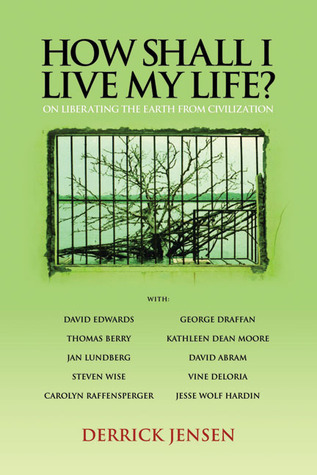
Listening to the Land: Conversations about Nature, Culture, and Eros
Book Description
Nature whispers secrets, but who is truly listening? In "Listening to the Land," Derrick Jensen crafts a compelling tapestry woven from deep conversations that explore the intricate connections between nature, culture, and the pulse of human desire. Through vivid narratives and striking insights, he challenges us to awaken to the beauty and fragility of our planet, urging a profound reevaluation of our relationship with the earth. Each dialogue unfolds like a dramatic film, urging a grapple with the profound questions of existence and responsibility. Are we brave enough to hear what the land has to say?
Quick Book Summary
"Listening to the Land: Conversations about Nature, Culture, and Eros" by Derrick Jensen is a thought-provoking collection of interviews that explores the deep interconnection between humanity and the natural world. Through compelling dialogues with prominent environmentalists, activists, and thinkers, Jensen delves into the complexities of how cultural narratives shape our relationship with nature. The book examines the spiritual and emotional dimensions of environmentalism, emphasizing the necessity of listening—truly listening—to the land as a living entity. Jensen challenges readers to confront the destructive patterns of Western industrial societies and to imagine more sustainable, respectful ways of relating to the environment. These conversations inspire a reconsideration of personal and collective responsibility, urging an embrace of vulnerability, passion, and active engagement with the world’s ecological crises.
Summary of Key Ideas
Table of Contents
The Interdependence of Culture and Nature
Derrick Jensen weaves a series of reflective interviews with environmental thinkers, indigenous leaders, activists, and philosophers, each presenting unique perspectives on our relationship with the natural world. The conversations highlight the ways cultural values and economic systems distance humans from the land, often treating nature as a commodity. Through personal stories and philosophical discussions, interviewees share the urgent need to restore a sense of kinship and reverence toward the planet that sustains us.
Reclaiming Connection Through Deep Listening
A major theme is the act of listening itself—not simply hearing, but opening oneself to the voice of the earth. Jensen and his interlocutors argue that genuine listening requires humility, patience, and a willingness to be transformed by what is heard. Deep listening is presented as a path to recovering lost wisdom, addressing ecological wounds, and healing the rift between human communities and the places they inhabit.
Questioning Dominant Cultural Narratives
The book also critically examines mainstream cultural narratives about progress, domination, and the value of material wealth. Jensen and his subjects deconstruct myths that justify exploitation of the environment, urging a reassessment of values. They suggest that dominant worldviews must be challenged and replaced with paradigms grounded in respect, reciprocity, and sustainable living.
The Role of Desire and Eros in Environmentalism
Eros—understood as passionate desire, not just sexuality—emerges as a powerful force. The interviews reveal how deep connection, care, and even longing for the land can fuel activism and inspire lasting change. By recognizing our emotional bonds with nature, Jensen asserts that we find not only personal fulfillment but also the motivation to defend and restore the earth.
Paths to Activism and Responsibility
Ultimately, "Listening to the Land" calls readers to action. The conversations reflect a spectrum of responses to ecological crisis, from direct activism to philosophical reimagining. The book ends with an invitation: to move beyond abstraction and ideology, and instead cultivate intimate, responsible relationships with our environment—listening, learning, and acting with courage for the sake of all life.
Download This Summary
Get a free PDF of this summary instantly — no email required.





